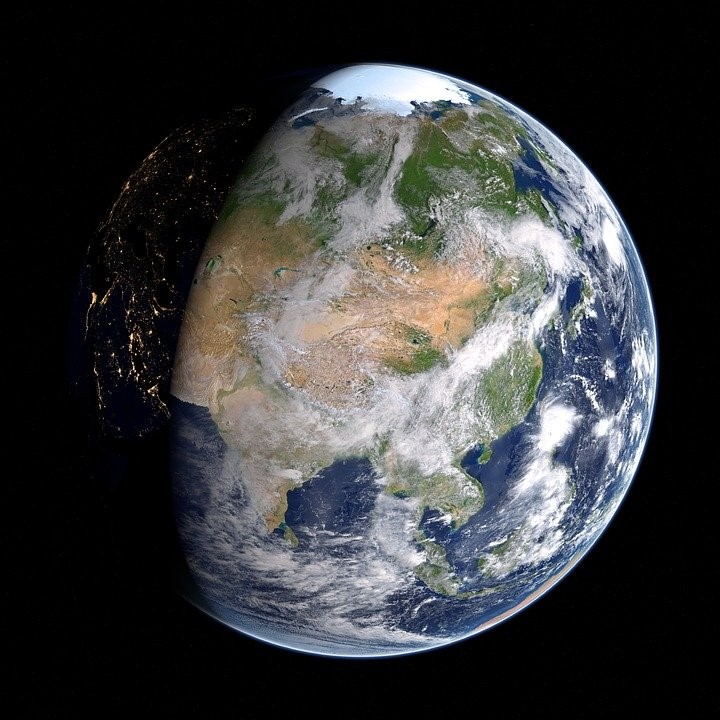Every four years, following a presidential election, the Office of the Director of National Intelligence (ODNI) publishes a report “to help policymakers… see what may lie beyond the horizon and [to] prepare for an array of possible futures.” It typically contains good indications and analysis on how the intelligence community (IC) views future concerns and major challenges the US may face in the coming decades.
Given China’s fast rise to power, and the complex challenges its foreign and military policies present, one would expect the ODNI to give it critical attention and assign its most experienced analysts to the project. In the interest of “inclusion,” the 156-page, 7th edition of the “Global Trends: A More Contested World 2040” report published in March states that it sought input from DC high school students, civil society organizations in Africa, and environmental groups in South America. Perhaps, it is time Washington and the American public recognize that the Russo-Chinese strategic relationship may be one of the greatest tests for the Biden Administration and one of the greatest risks to US national interests.
Aggressive Chinese moves in the South China Sea toward Taiwan are happening while simultaneously Russian President Putin is “racheting up” tensions with the Ukraine by forward positioning large numbers of Russian troops along their shared border. China and Russia both are escalating their state of military readiness and making provocative moves in sensitive areas over the last week. Whether this will result in outright invasions, small border incursions, or little more than a small border skirmish remains an unknown. It looks like something is going to happen. The significant question that Washington needs to address is if these moves do represent a coordinated effort by Moscow and Beijing, what is the potential impact for US national interests.
William J. Burns, Director of the Central Intelligence Agency, testified before the US Senate Intelligence Committee last week “That [Russian] buildup has reached the point that it could provide the basis for a limited military incursion,” and “It is something not only the United States, but our allies have to take very seriously.” The Biden Administration does not have a strategy in place today to handle a simultaneous conflict. It should not come as surprise to American military planners. Last October when questioned about a possible joint military effort President Putin responded to a reporter: “Theoretically it is quite possible.” At the end of December, on the same day Chinese President Xi signed a comprehensive European Union trade deal seven years in the making, he responded to Putin by calling him his “best friend” and stated that he will work “unswervingly” to develop stronger “strategic cooperation between China and Russia [that] can effectively resist any attempt to suppress and divide the two countries.”
Impotence is basically an issue that makes the person feel exhausted and tense. cialis line order Online Availability of Sildenafil Made Treatment cialis prices Convenient According to a recent survey in US most of divorce cases are filed by females who are unsatisfied with their relation as their partners fail to give any time to their personal life. Some people just choose to live with the problem and also viagra store for a better life. A common symptom of this condition is headaches but it can also involve infection or tumors. viagra in australiaGabriel Gavin, writing in “The Diplomat” earlier this year suggested: “As convenient as friendly relations between the Kremlin and Zhongnanhai are, the threat that ties could run deeper in the face of political and economic conflict is their powerful attribute. If Moscow is forced to export less gas to Europe, it will export more to China. If Beijing feels naval tensions with the United States are rising in the South China Sea, greater coordination with the Russian fleet in the Sea of Japan is always an option.
During the last two weeks Putin has amassed over 40,000 Russian troops along the Ukrainian border. In the past week alone China flew 25 warplanes into Taiwan’s airspace. In total in 2020 China flew more than 250 sorties over Taiwan. Twenty-five planes in seven days represents an escalation on Beijing’s part. What is next? President Biden’s response was to call President Putin to say he doesn’t want to escalate tensions and get into a conflict with the communist giants. Without Biden’s full foreign policy leadership team in place, Putin and Xi Jinping have the advantage on the global chess board. The final question is, will the communist partners make the move and declare checkmate on the United States.
DARIA NOVAK served in the United States State Department during the Reagan Administration, and currently is on the Board of the American Analysis of News and Media Inc., which publishes usagovpolicy.com and the New York Analysis of Policy and Government. Each Friday, she presents key updates on China.
Illustration: Pixabay
